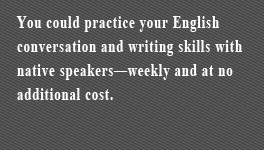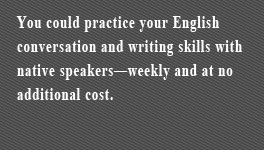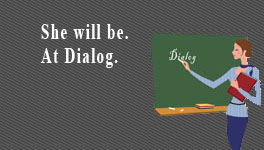Old Dog, New Trick

'Flirting With French,' by William Alexander

The New York Times October 5, 2014

The French will tell you there’s only one way for an adult to learn their language: pillow talk. “Ah, you need a French lover,” they say. “Then you will be able to speak.”
That’s one method William Alexander doesn’t try in his quest to realize his dream, which is not just to speak French, but to be French. That, he recognizes, is pretty hard to pull off if you don’t know the language. So he throws himself into learning to speak French with Gérard Depardieu-like gusto in a George Plimpton-like stunt, toiling over Rosetta Stone, enrolling in immersion classes, joining a conversational group, writing to a pen pal, papering his kitchen with vocabulary-boosting Post-it notes.
This isn’t the first time Alexander, an I.T. manager who lives in the Hudson Valley of New York, has latched onto an obsession and produced a book about it. A previous project about bread-making led him to grow his own wheat. In his new book, “Flirting With French: How a Language Charmed Me, Seduced Me and Nearly Broke My Heart,” he deals with a lot of pangs, yearnings and fears that readers, especially those around his age — 57 when he set out to learn French — can identify with. How old is too old to learn something new? Is there anything to be done about a memory that’s beginning to sputter?
Bon courage, mes amis. As Alexander discovers, French is the least of it when you’ve reached late middle age.
Learning a language as an adult is a hard, dreary, lonesome, infernally frustrating experience that can bring you to your knees, and Alexander is easily distracted from it. He’s much happier exploring how and when language is acquired than actually studying his conjugations. He’d rather ponder the counterintuitive gender assignments of French nouns, or understand just how the Académie Française and the General Commission for Terminology and Neologisms decide what words can and can’t be French. (Le wifi? Non. Let’s go with the more literal accès sans fil à l’Internet, s’il vous plait.)
The digressions meander pleasantly through linguistics theory, marauding conquerors and an ill-advised croissant-making session. He revels in idiom translation, offering up some juicy vulgarisms that a novice French speaker could easily blunder into.
But he never gives up. He hurls himself at French again and again almost like a cartoon character who, smacking up against a slammed door, slides to the floor in a puddle of humiliation. His wife, meanwhile, a doctor who has never studied French, turns out to be a natural, able to navigate serenely through brief encounters on the vacation they take in Normandy and Provence.
Perhaps the best advice he gets is from a fellow named Pierre: Stop trying so hard. Just be French. Voilà: William becomes Guy (short for Guillaume), assumes a more dashing persona and learns to make the most of two syllables: Ça va.
Alexander, of course, is in plentiful company with his Francophilia, and his book joins many others in the “I want to live in France, sit in cafes, drink wine, play boules and talk politics with the locals” genre. It’s brave to wade into territory marked by Twain, Hemingway, M. F. K. Fisher, Peter Mayle, David Sedaris and Adam Gopnik, to name just a few. But the appeal of “Flirting With French” is not in the breathless descriptions of Paris or the bad puns in the chapter titles (“A Room With a Veau”), but in the author’s amiable dunderheadedness as he delves into the culture, with all its confounding contradictions.
He finds plenty, well beyond the language. Really, how can it be that a country with a health care system that is among the most sophisticated in the world hasn’t embraced the shower curtain?
As for William/Guy, will he ever learn French? What will it do for his rusty synapses? And will the doctors be able to get his heart — which, alarmingly, sends him to the hospital multiple times in the course of the narrative — back into an acceptable rhythm? The answers are all a little equivocal. Still, by the end of this book, the door Alexander has been hurling himself against has opened, just a bit.
 +7 (495) 969-87-46
+7 (495) 969-87-46





















